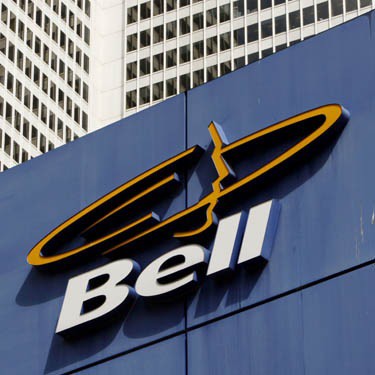 During the third day of hearings on usage-based billing, Mirko Bibic from Bell admitted that usage-based billing “prevents [other ISPs] from differentiating their offers from our own.”
During the third day of hearings on usage-based billing, Mirko Bibic from Bell admitted that usage-based billing “prevents [other ISPs] from differentiating their offers from our own.”
That remarkable admission is exactly what independent Internet Service Providers have been arguing since the issue of wholesale usage-based billing was first proposed by Canada’s largest broadband supplier.
Independent providers have managed to carve out a niche supplying primarily residential DSL customers with flat rate usage plans, made possible because of wholesale access provisions assured under Canada’s telecommunications regulations. As Bell, Rogers, Shaw, and Videotron have systematically imposed usage limits on their residential customers (and occasionally lowered them), consumers seeking better value have found it from smaller ISPs that still offer unlimited access.
As Bell frets over its inability to reap retail revenue from customers departing for other providers, the idea of imposing usage-based billing on wholesale accounts ends that revenue erosion once and for all. As Bell admits, it forces every provider in Canada to charge the same high prices they do for Internet access.
Canada’s telecom regulator, the CRTC, still cannot define what a “heavy user” is, and neither could Bibic. But with these pricing schemes, now they don’t have to. Imposing higher prices with vague promises that the resulting revenue will expand Canada’s broadband networks is eerily familiar to what Time Warner promised residents in several major cities, and then didn’t deliver.
In western New York, the cable company promised a new generation of blazing fast speeds on a world class broadband network, as long as customers agreed to pay up to $150 for unlimited residential service per month. The old price was $50. But the cable company provided those upgrades in other cities instead — without usage based pricing. No wonder residents were furious. After two weeks of protest, Time Warner threw in the towel.
Two years later, the promised upgrades are finally slated to arrive, long after being made available in most large cities in New York State.
Provider-promised bait and switch broadband upgrades merely represent sucker bets, and no one except the provider wins.
If Bell gets its way, there will be no reason for anyone to do business with an independent service provider. They’ll be forced to charge increased prices, sometimes even higher than Bell itself.


 Subscribe
Subscribe
That is exactly why my household no longer subscribes to Bell Internet! For now, we still have Home Phone and TV with them, but they getting a total of only $66 from us instead of over $90!
Here’s a personal story that reflects Internet Overpricing and it happened overnight to a Shaw subscriber in North Vancouver, BC. It’s long, and I apologize for that. It’s intended as a friendly reminder to document your bandwidth stats frequently, Folks, in case some ISP, somewhere, decides to kick you in the… A couple of years ago, I set up a client with two home networks; one for WLAN (N) and the other for GigaLAN on Shaw’s High Speed Package (which allows 2 IP addresses). They were consistently enjoying 14-18Mbps Download and the advertised “up to 0.5Mbps” Upload speeds (0.47-0.49), which… Read more »
Confirming the consumer’s old node is still extremely active. 🙁
godar